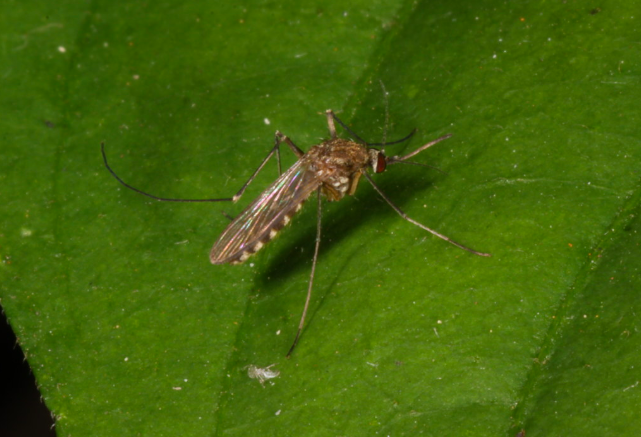BREAKING NEWS: Risk level of EEE virus raised to high in Wayland
Credit: Flickr user Derek Keats
The spread of EEE virus to humans occurs through the bite of infected mosquitoes. The virus has been found in 400 mosquito samples this year, and Wayland is now at a high risk for mosquitoes carrying it.
September 8, 2019
As of Sept. 6, 2019, the Massachusetts Department of Public Health (MDPH) raised the risk level for Eastern Equine Encephalitis (EEE) virus infection in Wayland to high. This is due to two additional cases of EEE virus infection, a woman in her 60s from Northborough and a five-year-old girl in Sudbury. This brings the total number of human cases of EEE to seven this year in Massachusetts.
According to the MDPH, risk levels in Framingham, Marlborough, Northborough and Sudbury have been raised to critical, and the risk levels in Berlin, Boylston, Hudson, Maynard, Stow and Wayland have been raised to high. The risk levels in towns have been changing frequently, so residents with questions can visit the local Health Department website for information.
Due to this risk, the health department stated that all Wayland public fields outdoor activities, including sports practices, should end at 6 p.m. until 8 a.m. Students who arrive to school before 8 a.m. will be asked to come inside the building. Students who are waiting for the bus in the morning are being asked to wait inside as much as possible, wear pants and long sleeves to protect against mosquitoes and use mosquito repellant. Check this link on how to use mosquito repellent most effectively.


![On Monday, June 10, the annual Underclassmen Awards ceremony took place inside of WHSs auditorium.
I think that these awards bring motivation to [WHS] students to preform well academically, Sophomore Rufat Hasanov said.](https://waylandstudentpress.com/wp-content/uploads/2024/06/IMG_0474-1200x800.jpg)












![The Wayland residents who volunteer to coach baseball try to make the environment fun and uplifting for players. “[I try] to build the kids up,” Co-Commissioner and coach for a Minors team Alex Ahmed said. “If someone strikes out, you encourage them, [and] say that [they] get another chance, [or they] could try again next time.”](https://waylandstudentpress.com/wp-content/uploads/2024/06/unnamed-1200x801.png)













































































